In Focus This Week
Election Day 2022: How voters changed voting in 2022
State and local election admin ballot measures alter the process
By M. Mindy Moretti
electionline.org
While the economy weighed heavily on voter’s minds on November 8, according to the Associated Press’ VoteCast, 44% of voters  said the future of democracy was their primary consideration when voting this year.
said the future of democracy was their primary consideration when voting this year.
And while that certainly was clear in the choice many voters made for who will be in charge of elections in their state, it was also clear in many of the state and local elections administration-related ballot measures.
Ranked choice voting was a big winner this year with voters in Nevada, Ojai, California, Fort Collins, Colorado, Evanston, Illinois, Multnomah County, Oregon, Portland, Oregon and Seattle, Washington all voting to move their state or local systems to ranked choice.
Early voting was a winner with voters in Connecticut agreeing to amend the state constitution to allow for early, in-person voting for the first time, while voters in Michigan enshrined a nine-day early voting period.
Voters were split on voter ID. In Arizona, Proposition 309 that would have changed the ID rules for both mail-in and in-person voting failed whereas voters in Nebraska voted to allow the state Legislature to implement voter photo ID.
Here’s a look at the statewide and local election administration-related ballot measures:
Statewide Measures
Arizona: Voters in Arizona had several elections-related ballot measures to consider. At press time Proposition 309, the Voter Identification Requirements for Mail-In Ballots and In-Person Voting Measure appears to have failed. Under the measure, voters would have been required to add more information to the signature and date on the return envelope. Additionally, the proposition would have eliminated the ability of registered voters who do not have a state or federally-issued photo ID with them when they vote in-person to provide other proof of identity to cast a ballot.
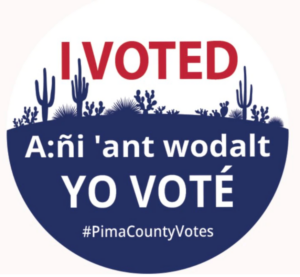 Additionally, there were three proposed restrictions to ballot measures on this year’s ballot: Proposition 128, which would allow the Legislature to amend or repeal ballot measures even after they are approved if a judge rules that provisions within them are unconstitutional appears to have failed; Proposition 129, which would limit citizen-initiated ballot measures to a single topic appears to have been approved; and Proposition 132, which would require any ballot initiative that would raise taxes to pass by 60 percent also appears to have been approved. .
Additionally, there were three proposed restrictions to ballot measures on this year’s ballot: Proposition 128, which would allow the Legislature to amend or repeal ballot measures even after they are approved if a judge rules that provisions within them are unconstitutional appears to have failed; Proposition 129, which would limit citizen-initiated ballot measures to a single topic appears to have been approved; and Proposition 132, which would require any ballot initiative that would raise taxes to pass by 60 percent also appears to have been approved. .
Arkansas: Issue 2, which would require 60% approval for all citizen-led ballot initiatives and proposed constitutional amendments to pass has failed with 59.14% of the people voting against it. The current standard of 50% plus one vote for approval will remain in place.
Connecticut: Question 1, is the Allow for Early Voting Amendment, which would amend the state’s constitution. The question was approved with 60.52% of the vote which is enough under Connecticut law to amend the state’s constitution. The details must now be worked out by the state Legislature. The recently approved amendment is already facing its first legal challenge.
Michigan: With 60% percent of the vote Proposal 2, the Voting Policies in Constitution Amendment has been approved. A “yes” vote supports adding several election and voting-related policies to the Michigan Constitution, including some policies that exist in statute and others which would be new. As provisions of the Michigan Constitution, legislators would not be able to repeal or amend these policies without first passing a constitutional amendment, which would require voter approval. Proposal 2 would add 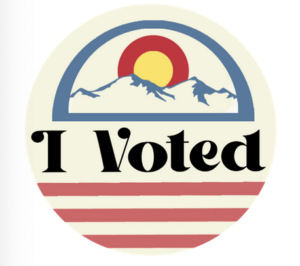 the following policies to the state constitution: creating a nine-day early voting period; allowing for a signed affidavit or photo identification to vote; requiring that military and overseas ballots postmarked by election day are counted; providing voters with a right to request an absentee ballot; requiring the state to fund prepaid stamps and a tracking system for absentee ballots; requiring the state to fund a number of absentee ballot drop boxes; providing that local governments can accept charitable and in-kind donations to assist with running elections as long as donations are disclosed and aren’t from foreign entities; and providing that election officials are responsible for election audits, requiring election audits to be conducted in public, and requiring election results to be certified based on votes cast. Proposal 2 would also add constitutional language saying that laws, regulations, and practices that interfere with a person’s right to vote are prohibited.
the following policies to the state constitution: creating a nine-day early voting period; allowing for a signed affidavit or photo identification to vote; requiring that military and overseas ballots postmarked by election day are counted; providing voters with a right to request an absentee ballot; requiring the state to fund prepaid stamps and a tracking system for absentee ballots; requiring the state to fund a number of absentee ballot drop boxes; providing that local governments can accept charitable and in-kind donations to assist with running elections as long as donations are disclosed and aren’t from foreign entities; and providing that election officials are responsible for election audits, requiring election audits to be conducted in public, and requiring election results to be certified based on votes cast. Proposal 2 would also add constitutional language saying that laws, regulations, and practices that interfere with a person’s right to vote are prohibited.
Nebraska: With 65.6% of the vote, Ballot Measure 432 that will require voters to show a photo ID to cast a future ballot, has been approved. It is now up to the state Legislature to work out the details of what types of identification will be permitted.
Nevada: With 52.86% of the vote, Nevada Question 3 was approved. The approval of Question 3 will establish open top-five primaries and ranked-choice voting for general elections, which would apply to congressional, gubernatorial, state executive official, and state legislative elections.
 Ohio: Issue 2 is the Citizenship Voting Requirement Amendment. A “yes” vote supports prohibiting local governments from allowing noncitizens or those who lack the qualifications of an elector to vote in local elections. The Amendment was approved with 77.05% of the vote.
Ohio: Issue 2 is the Citizenship Voting Requirement Amendment. A “yes” vote supports prohibiting local governments from allowing noncitizens or those who lack the qualifications of an elector to vote in local elections. The Amendment was approved with 77.05% of the vote.
Local Measures
California: There were elections-related ballot measures up for vote in several California jurisdictions this year. And while local elections officials are still processing and counting ballots, here’s a look at where they stand at press time. In San Clemente, with 53.09% of the vote, the city’s clerk, which has oversight of local elections, will now be appointed. In Oakland, voters approved Measure S with 62.9% of the vote. Under the measure the city charter would be amended to allow noncitizen residents who are the legally recognized caregiver of a child for the Office of Oakland School Board Director if they are otherwise eligible to vote under state and local law. With 55.74% of the voter, voters in Ojai have approved a measure that will move the city to a ranked choice voting system starting in 2024.
Colorado: With 63.33% of the vote Boulder voters have approved measure 2E, a charter amendment that will move the Regular Municipal Election (council member elections) to even years beginning in 2026. This will shift City Council elections to even-numbered years to be held on the same date as the state general election and will result in council members who are elected in the 2023 and 2025 elections serving three-year terms. The term for the mayor elected in 2023 will increase to three years. Local ballot measures will continue to appear on the ballot on uneven years. In Fort Collins, about 58% of voters have said yes to Ballot 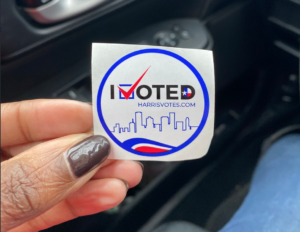 Question 2C that would move the city to a ranked choice voting system. If the numbers hold the initiative win is certified, Fort Collins will be the largest city in the state to use ranked choice.
Question 2C that would move the city to a ranked choice voting system. If the numbers hold the initiative win is certified, Fort Collins will be the largest city in the state to use ranked choice.
Hawaii: With 78.5% of the vote, voters on Kaua’i have decided to amend the county charter to require that future elections for prosecuting attorney occur at the same time as the county’s regularly scheduled elections.
Illinois: With 82.21% of the vote, Evanston will become the first city in Illinois to use ranked choice voting in municipal elections beginning in April 2025.
Oregon: There were several local measures on the ballot in Oregon this year. In Portland, Measure 26-228 was approved with about 58 percent of the vote. Not only will the measure overall the city’s government structure, but it will also move local elections to a ranked choice voting system. In Multnomah County, voters were split on two elections-related measures. With 66% of the vote, the county will move to a ranked choice voting system. A measure that would have allowed noncitizens to vote in local elections failed after receiving only 45% of the vote.
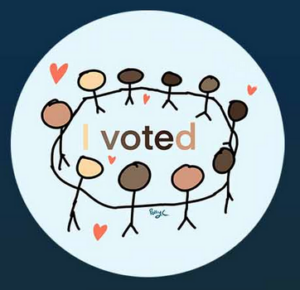 Washington: Although votes are still being processed and tallied in Washington, there are results in several local elections-related ballot measures. Voters in San Juan County appear to have rejected a ballot measure that would have moved the county to a ranked choice voting system for local races. In King County, voters faced several elections-related ballot measures. Charter Amendment No. 1 would allow the county charter to be amended to move elections for the county offices of executive, assessor, director of elections and councilmembers from odd-numbered to even-numbered year. Proposition 1A and 1B gave voters two choices for changing how local elections officials are elected. Choice number was should either measure be enacted and choice number two was which measure. 1A was a preferential voting system and 1B was ranked choice voting system. While still unofficial, voters voted yes (50.91%), to changing how local elections are conducted and then overwhelmingly voted in favor of ranked choice voting (76.68%).
Washington: Although votes are still being processed and tallied in Washington, there are results in several local elections-related ballot measures. Voters in San Juan County appear to have rejected a ballot measure that would have moved the county to a ranked choice voting system for local races. In King County, voters faced several elections-related ballot measures. Charter Amendment No. 1 would allow the county charter to be amended to move elections for the county offices of executive, assessor, director of elections and councilmembers from odd-numbered to even-numbered year. Proposition 1A and 1B gave voters two choices for changing how local elections officials are elected. Choice number was should either measure be enacted and choice number two was which measure. 1A was a preferential voting system and 1B was ranked choice voting system. While still unofficial, voters voted yes (50.91%), to changing how local elections are conducted and then overwhelmingly voted in favor of ranked choice voting (76.68%).
(Editor’s Note: We’ll be taking next Thursday off to eat and argue with our family, oh wait, we mean for Thanksgiving. Enjoy your holiday and if you need some help with those dinnertime conversations that don’t involve politics, here are some ideas.)
electionline Daily News Email
 What’s the best part of waking up? electionline Daily News in your inbox of course so be sure to sign up for your daily dose.
What’s the best part of waking up? electionline Daily News in your inbox of course so be sure to sign up for your daily dose.
Each morning you’ll receive the top headlines of the day, plus a listing of states featured in that day’s news round up.
To sign up, simply visit our site and provide us with your email and you’ll begin receiving the news in your inbox each morning.
We Google so you don’t have to!
Election News This Week
 ERIC: Alabama Secretary of State-election Wes Allen announced his plans to withdraw the state from the Electronic Registration Information Center (ERIC). The decision puts Allen at odds with outgoing Secretary of State John Merrill who said the system has helped identify voter fraud. Allen said he heard repeatedly while campaigning across the state during the last 18 months that people did not want their personal information sent to an out-of-state group. “I made a promise that I would withdraw Alabama from ERIC and I am keeping that promise,” Allen said in a press release. “I have informed them, via certified letter, that upon my inauguration on January 16, 2023, Alabama will immediately and permanently cease to transmit any information regarding any citizen in the State of Alabama to their organization and that we will no longer participate in any aspect of the ERIC program.” In a statement responding to Allen’s press release today, Merrill reiterated his position that ERIC provides an important service. “Alabama uses ERIC to preserve a clean and accurate voter list,” Merrill said “We have not experienced one negative issue because of our relationship with ERIC. In fact, ERIC identified 12 confirmed incidents of voter fraud during the 2020 election where citizens voted in both Alabama and another member state. These cases have been turned over to the Attorney General’s Office for investigation. Other member states are currently working with Alabama to identify other incidents of voter fraud. This would not have been possible without our partnership with ERIC.”
ERIC: Alabama Secretary of State-election Wes Allen announced his plans to withdraw the state from the Electronic Registration Information Center (ERIC). The decision puts Allen at odds with outgoing Secretary of State John Merrill who said the system has helped identify voter fraud. Allen said he heard repeatedly while campaigning across the state during the last 18 months that people did not want their personal information sent to an out-of-state group. “I made a promise that I would withdraw Alabama from ERIC and I am keeping that promise,” Allen said in a press release. “I have informed them, via certified letter, that upon my inauguration on January 16, 2023, Alabama will immediately and permanently cease to transmit any information regarding any citizen in the State of Alabama to their organization and that we will no longer participate in any aspect of the ERIC program.” In a statement responding to Allen’s press release today, Merrill reiterated his position that ERIC provides an important service. “Alabama uses ERIC to preserve a clean and accurate voter list,” Merrill said “We have not experienced one negative issue because of our relationship with ERIC. In fact, ERIC identified 12 confirmed incidents of voter fraud during the 2020 election where citizens voted in both Alabama and another member state. These cases have been turned over to the Attorney General’s Office for investigation. Other member states are currently working with Alabama to identify other incidents of voter fraud. This would not have been possible without our partnership with ERIC.”
 Preliminary Findings: The Organization for Security and Cooperation in Europe (OSCE) has released initial findings and conclusions from the 2022 midterm election. The November 8 mid-term congressional elections were competitive and professionally managed, with active voter participation. However, the noted efforts to undermine voters’ trust in the electoral process by baselessly questioning its integrity can result in systemic challenges. Campaigning was free but highly polarized and marred by harsh rhetoric. In many cases, partisan redistricting resulted in uncompetitive constituencies. Disclosure mechanisms for campaign finance are generally comprehensive, but loopholes in the regulatory framework make the impact of money in politics less transparent. Many in the diverse media landscape made efforts to present accurate information, but polarization and widespread disinformation affected voters’ ability to inform themselves. Election administrators enjoyed general confidence, but the politicization of the offices of chief election officials and the intimidation of election workers are of concern. Restrictions on international observers in some states are at odds with OSCE commitments. The mission includes 17 experts based in Washington, DC and 40 long-term observers deployed throughout the country. On election day, 194 observers from 48 countries were deployed, including 62 observers deployed by ODIHR (the OSCE office that manages election observation missions), as well a 132-member delegation from the OSCE Parliamentary Assembly. The OSCE’s full statement will be issued in early 2023.
Preliminary Findings: The Organization for Security and Cooperation in Europe (OSCE) has released initial findings and conclusions from the 2022 midterm election. The November 8 mid-term congressional elections were competitive and professionally managed, with active voter participation. However, the noted efforts to undermine voters’ trust in the electoral process by baselessly questioning its integrity can result in systemic challenges. Campaigning was free but highly polarized and marred by harsh rhetoric. In many cases, partisan redistricting resulted in uncompetitive constituencies. Disclosure mechanisms for campaign finance are generally comprehensive, but loopholes in the regulatory framework make the impact of money in politics less transparent. Many in the diverse media landscape made efforts to present accurate information, but polarization and widespread disinformation affected voters’ ability to inform themselves. Election administrators enjoyed general confidence, but the politicization of the offices of chief election officials and the intimidation of election workers are of concern. Restrictions on international observers in some states are at odds with OSCE commitments. The mission includes 17 experts based in Washington, DC and 40 long-term observers deployed throughout the country. On election day, 194 observers from 48 countries were deployed, including 62 observers deployed by ODIHR (the OSCE office that manages election observation missions), as well a 132-member delegation from the OSCE Parliamentary Assembly. The OSCE’s full statement will be issued in early 2023.
 The Kids Are Alright: According to initial research from CIRCLE, it’s estimated that 27% of youth (ages 18-29) voted in 2022. That makes this the midterm election with the second-highest youth voter turnout in almost three decades. CIRCLE also estimates that youth turnout was even higher in some battleground states. After hovering around 20% turnout in midterm elections since the 1990s, young people shifted that trend in 2018 and largely maintained that trend in 2022, with more than a quarter of young people casting a ballot. Youth are increasing their electoral participation, leading movements, and making their voices heard on key issues that affect their communities. CIRCLE also estimates that, in a group of nine electorally competitive states for which exit poll data is available (FL, GA, MI, NC, NH, NV, OH, PA, WI), the aggregate youth voter turnout was 31%. These are early estimates of youth voter turnout that may shift in the coming days. “Young people proved once again that they’ll turn out to vote and impact election results, and their turnout in 2022 is one of the highest we’ve ever seen in a midterm election,” said Kei Kawashima-Ginsberg, Newhouse Director of CIRCLE. “In many states youth overcame changes to election laws that posed direct barriers to participation and a lack of strong and continued investment in youth registration. There’s both a big need and extraordinary potential to continue building on this trend of strong youth voting by stepping up our support for all youth to have a voice in our democracy.”
The Kids Are Alright: According to initial research from CIRCLE, it’s estimated that 27% of youth (ages 18-29) voted in 2022. That makes this the midterm election with the second-highest youth voter turnout in almost three decades. CIRCLE also estimates that youth turnout was even higher in some battleground states. After hovering around 20% turnout in midterm elections since the 1990s, young people shifted that trend in 2018 and largely maintained that trend in 2022, with more than a quarter of young people casting a ballot. Youth are increasing their electoral participation, leading movements, and making their voices heard on key issues that affect their communities. CIRCLE also estimates that, in a group of nine electorally competitive states for which exit poll data is available (FL, GA, MI, NC, NH, NV, OH, PA, WI), the aggregate youth voter turnout was 31%. These are early estimates of youth voter turnout that may shift in the coming days. “Young people proved once again that they’ll turn out to vote and impact election results, and their turnout in 2022 is one of the highest we’ve ever seen in a midterm election,” said Kei Kawashima-Ginsberg, Newhouse Director of CIRCLE. “In many states youth overcame changes to election laws that posed direct barriers to participation and a lack of strong and continued investment in youth registration. There’s both a big need and extraordinary potential to continue building on this trend of strong youth voting by stepping up our support for all youth to have a voice in our democracy.”
 It’s in the Mail: According to the National Vote at Home Institute, with over 60 million mailed-out ballots, returns of those still tracking towards 42 million or better, and about 120 million total votes cast nationally, the MOBET estimate of 35% of all votes cast appears very much in reach. Based on the numbers NVAHI now can see, in 2022 they now expect: Excuse required states to see 4% utilization, at best (mailed-out ballots divided by registered voters); No excuse states to see more than 4x that rate at about 17% utilization; and No excuse states that include SSU to see more than 5x the excuse required rate, at about 21% utilization. Vote at Home’s MOBET information tool relies on official data originating from state and local election officials, some of it compiled by trusted sources including the U.S. Elections Project and Catalist. Some vote-by-mail highlights include Nebraska where the state averaged 52.8% turnout. But the eleven counties that have opted to go to 100% mailed-out ballots averaged 68.3% – a full 15%+ points higher. In Based on their move to no-excuse mailed-out ballot voting, Massachusetts had over 1.2 million mailed-out ballots in 2022, up over 10x from just 105,000 in 2018. It appears when the counting is done, about 80% of those will have been cast. In contrast, polling place voters turnout out is coming in at just over a 40% rate. Wisconsin’s use of mailed-out ballots is up almost 5x from 2018 (168,000 to over 800,000).
It’s in the Mail: According to the National Vote at Home Institute, with over 60 million mailed-out ballots, returns of those still tracking towards 42 million or better, and about 120 million total votes cast nationally, the MOBET estimate of 35% of all votes cast appears very much in reach. Based on the numbers NVAHI now can see, in 2022 they now expect: Excuse required states to see 4% utilization, at best (mailed-out ballots divided by registered voters); No excuse states to see more than 4x that rate at about 17% utilization; and No excuse states that include SSU to see more than 5x the excuse required rate, at about 21% utilization. Vote at Home’s MOBET information tool relies on official data originating from state and local election officials, some of it compiled by trusted sources including the U.S. Elections Project and Catalist. Some vote-by-mail highlights include Nebraska where the state averaged 52.8% turnout. But the eleven counties that have opted to go to 100% mailed-out ballots averaged 68.3% – a full 15%+ points higher. In Based on their move to no-excuse mailed-out ballot voting, Massachusetts had over 1.2 million mailed-out ballots in 2022, up over 10x from just 105,000 in 2018. It appears when the counting is done, about 80% of those will have been cast. In contrast, polling place voters turnout out is coming in at just over a 40% rate. Wisconsin’s use of mailed-out ballots is up almost 5x from 2018 (168,000 to over 800,000).
Personnel News: Mike Kem is retiring as the Christian County, Kentucky clerk after 24 years on the job. Salt Lake County, Utah Clerk Sherrie Swensen has overseen her last election before retirement. Terry Graham, interim elections director in Richland County, South Carolina has decided to stay on the job. Former Maine Secretary of State Matt Dunlap has been appointed state auditor. Stacey Nell won the Summit County, Colorado Clerk and Recorder race but has accepted a job elsewhere. Lucy Ybarra is stepping down as the Grimes County, Texas elections administrator.
Legislative Update
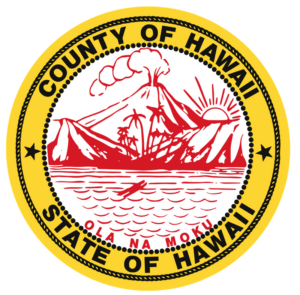 Hawaii County, Hawaii: After many changes and amendments, the Hawaii County Council passed a bill that bans concealed carry of a firearm in certain locations. The Honolulu City Council will be taking up a similar proposal this month. So far 19 open carry lists have been issued in Hawaii County, but those holding licenses will have a broad list of places where concealed carry is outlawed. That includes voting centers, government buildings, public transportation and places that serve alcohol. The bill will also ban concealed carry at hospitals, schools and daycares unless the licensed gun owner has permission from the facility. “It’s finding that balance, I think my colleagues can agree it’s finding that balance it’s not a broad prohibition. It does give organizers of the event the right to say the condition of the event. Something like drug or alcohol-free event,” Hawaii County Councilmember Heather Kimball said.
Hawaii County, Hawaii: After many changes and amendments, the Hawaii County Council passed a bill that bans concealed carry of a firearm in certain locations. The Honolulu City Council will be taking up a similar proposal this month. So far 19 open carry lists have been issued in Hawaii County, but those holding licenses will have a broad list of places where concealed carry is outlawed. That includes voting centers, government buildings, public transportation and places that serve alcohol. The bill will also ban concealed carry at hospitals, schools and daycares unless the licensed gun owner has permission from the facility. “It’s finding that balance, I think my colleagues can agree it’s finding that balance it’s not a broad prohibition. It does give organizers of the event the right to say the condition of the event. Something like drug or alcohol-free event,” Hawaii County Councilmember Heather Kimball said.
 Nebraska: Last week, the voters in Nebraska overwhelmingly voted to approve a constitutional amendment required a photo ID to vote. State Sen. Tom Brewer of Gordon, who chairs the legislative committee that will carry the water on the legislation that will shape the bill said it’s not going to be an easy task. “There’s a lot of different, possible versions of what can come out of this,” Brewer told The Nebraska Examiner. Brewer said he is braced for loud and long debate during the coming legislative session. Brewer said he is bound to a mission: “To make sure nobody is left out, that we allow everyone the privilege of voting.”
Nebraska: Last week, the voters in Nebraska overwhelmingly voted to approve a constitutional amendment required a photo ID to vote. State Sen. Tom Brewer of Gordon, who chairs the legislative committee that will carry the water on the legislation that will shape the bill said it’s not going to be an easy task. “There’s a lot of different, possible versions of what can come out of this,” Brewer told The Nebraska Examiner. Brewer said he is braced for loud and long debate during the coming legislative session. Brewer said he is bound to a mission: “To make sure nobody is left out, that we allow everyone the privilege of voting.”
 Ohio: According to The Toledo Blade, lawmakers plan to take up voting rights during the upcoming lame duck session. With two years before the 2024 presidential election the paper reported, lame duck could prove the time for lawmakers to try to enact voting reforms that would trim the early voting calendar, restrict the use of absentee ballot drop boxes, and possibly mandate photo ID. A Republican-backed bill has been pending in the General Assembly that would, among other things, eliminate in-person early voting on the Monday immediately preceding Election Day and limit the number and operation of drop boxes for absentee ballots. There is also talk of potentially adding a requirement for photo identification for in-person voting, generally opposed by Democrats. Current law provides a menu of acceptable identification but does not mandate a photo ID. The two chambers have both scheduled five session days starting on Wednesday and continuing until Dec. 21. Any legislation not passed and sent to the governor’s desk by the time the 134th General Assembly is gaveled to a close before the end of the year must start the entire legislative process over next year.
Ohio: According to The Toledo Blade, lawmakers plan to take up voting rights during the upcoming lame duck session. With two years before the 2024 presidential election the paper reported, lame duck could prove the time for lawmakers to try to enact voting reforms that would trim the early voting calendar, restrict the use of absentee ballot drop boxes, and possibly mandate photo ID. A Republican-backed bill has been pending in the General Assembly that would, among other things, eliminate in-person early voting on the Monday immediately preceding Election Day and limit the number and operation of drop boxes for absentee ballots. There is also talk of potentially adding a requirement for photo identification for in-person voting, generally opposed by Democrats. Current law provides a menu of acceptable identification but does not mandate a photo ID. The two chambers have both scheduled five session days starting on Wednesday and continuing until Dec. 21. Any legislation not passed and sent to the governor’s desk by the time the 134th General Assembly is gaveled to a close before the end of the year must start the entire legislative process over next year.
 Wright Township, Pennsylvania: Township supervisors deadlocked 2-2 on a proposed resolution that would have banned the municipality from continuing to host a mail-in ballot drop box. In recent elections, the township volunteer fire department at 477 S. Main Road has hosted a drop box to collect ballots. This week, supervisors considered a resolution submitted by a resident that said the use of drop boxes “has seriously undermined the integrity of our electoral process and continues to erode the public’s trust.” The resolution, which was defeated because it failed to get a majority vote, would have banned drop boxes in Wright Twp. “unless compelled to do so by Pennsylvania statute or by official legal authority.” Supervisors Colleen Macko and Candace Smith voted for the resolution, while supervisors Louis Welebob Jr. and Matthew Howton voted against the measure. Supervisor Chairman Gary Zampetti did not attend the meeting due to an “excused” absence.
Wright Township, Pennsylvania: Township supervisors deadlocked 2-2 on a proposed resolution that would have banned the municipality from continuing to host a mail-in ballot drop box. In recent elections, the township volunteer fire department at 477 S. Main Road has hosted a drop box to collect ballots. This week, supervisors considered a resolution submitted by a resident that said the use of drop boxes “has seriously undermined the integrity of our electoral process and continues to erode the public’s trust.” The resolution, which was defeated because it failed to get a majority vote, would have banned drop boxes in Wright Twp. “unless compelled to do so by Pennsylvania statute or by official legal authority.” Supervisors Colleen Macko and Candace Smith voted for the resolution, while supervisors Louis Welebob Jr. and Matthew Howton voted against the measure. Supervisor Chairman Gary Zampetti did not attend the meeting due to an “excused” absence.
 Vermont: Vermont lawmakers say they expect to consider a look at ranked-choice voting, also known as instant runoff voting. The system allows voters to rank their choices on the ballot. The bottom candidates are eliminated until one candidate reaches 50%. Burlington used ranked-choice voting from 2005 to 2009 and then repealed it in 2010. An effort to set up ranked choice voting for presidential primaries fizzled out last year, but this coming session lawmakers say they are going to take a look at it for the presidential primaries. The Vermont Public Interest Research Group supports the reforms that have been implemented in several states for federal elections, including Maine and Alaska. “And that’s a mix of red and blue states. It’s not about one party or anything like that, so I’m hoping that we will find some good support for that,” said VPRIG’s Paul Burns. Vermont Secretary of State-elect Sarah Copeland Hanzas has said she supports the system for presidential primaries but Governor Phil Scott says he’s opposed.
Vermont: Vermont lawmakers say they expect to consider a look at ranked-choice voting, also known as instant runoff voting. The system allows voters to rank their choices on the ballot. The bottom candidates are eliminated until one candidate reaches 50%. Burlington used ranked-choice voting from 2005 to 2009 and then repealed it in 2010. An effort to set up ranked choice voting for presidential primaries fizzled out last year, but this coming session lawmakers say they are going to take a look at it for the presidential primaries. The Vermont Public Interest Research Group supports the reforms that have been implemented in several states for federal elections, including Maine and Alaska. “And that’s a mix of red and blue states. It’s not about one party or anything like that, so I’m hoping that we will find some good support for that,” said VPRIG’s Paul Burns. Vermont Secretary of State-elect Sarah Copeland Hanzas has said she supports the system for presidential primaries but Governor Phil Scott says he’s opposed.
 Texas: Two state lawmakers representing the Houston area filed bills this week to address issues faced by the Harris County elections department in the November midterms. State Sen. Paul Bettencourt, R-Houston, and state Rep. Valoree Swanson, R- Spring, filed companion bills in their respective chambers that would allow the secretary of state’s office to appoint election marshals from the Department of Public Safety. The marshals could be dispatched to investigate potential voting violations as they occur during the November elections and primaries, the bills state. A marshal would be appointed in each of the state’s seven Department of Public Safety regions, it said. “Free and fair elections are the bedrock of our democracy. When we get credible complaints of election irregularities, we are statutorily required to investigate,” Ogg said in a statement. “It is my duty as the elected district attorney to follow the evidence and follow the law, and I will.” Neither Scott nor Ogg elaborated on the nature of the complaints received. Similar bills have been filed before but did not make it out of committee, per state records.
Texas: Two state lawmakers representing the Houston area filed bills this week to address issues faced by the Harris County elections department in the November midterms. State Sen. Paul Bettencourt, R-Houston, and state Rep. Valoree Swanson, R- Spring, filed companion bills in their respective chambers that would allow the secretary of state’s office to appoint election marshals from the Department of Public Safety. The marshals could be dispatched to investigate potential voting violations as they occur during the November elections and primaries, the bills state. A marshal would be appointed in each of the state’s seven Department of Public Safety regions, it said. “Free and fair elections are the bedrock of our democracy. When we get credible complaints of election irregularities, we are statutorily required to investigate,” Ogg said in a statement. “It is my duty as the elected district attorney to follow the evidence and follow the law, and I will.” Neither Scott nor Ogg elaborated on the nature of the complaints received. Similar bills have been filed before but did not make it out of committee, per state records.
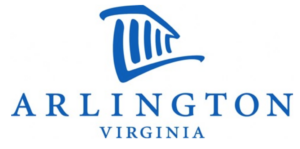 Arlington, Virginia: The Arlington County Board unanimously endorsed testing out ranked choice voting for the county board elections on November 19. “This reform alone will not be sufficient to overcome… the forces trying to undermine our democratic traditions,” Board Chair Katie Cristol said. “Nevertheless, I think this is worth trying. I hope that we can not only excite Arlington voters about the potential, give them an opportunity to express the full range of their preferences, but also provide a model to other communities.” The Board’s decision makes Arlington the first locality in Virginia to move forward on adopting ranked-choice voting. The change, which would only apply to primaries run by the county’s Office of Elections, comes months ahead of the primary. Legally, the Board has until March 22, 2023 to enact RCV for the June 20 primary. Local political parties will declare whether they will pick their nominee via a primary run by Arlington’s election office or a party-run convention.
Arlington, Virginia: The Arlington County Board unanimously endorsed testing out ranked choice voting for the county board elections on November 19. “This reform alone will not be sufficient to overcome… the forces trying to undermine our democratic traditions,” Board Chair Katie Cristol said. “Nevertheless, I think this is worth trying. I hope that we can not only excite Arlington voters about the potential, give them an opportunity to express the full range of their preferences, but also provide a model to other communities.” The Board’s decision makes Arlington the first locality in Virginia to move forward on adopting ranked-choice voting. The change, which would only apply to primaries run by the county’s Office of Elections, comes months ahead of the primary. Legally, the Board has until March 22, 2023 to enact RCV for the June 20 primary. Local political parties will declare whether they will pick their nominee via a primary run by Arlington’s election office or a party-run convention.
Legal Update
 Arizona: The Arizona Supreme Court declined the request of the Cochise County Board of Supervisors, county recorder and elections director to hear their appeal of an earlier ruling that barred the county from conducting a hand count of all ballots. Justice William Montgomery wrote the order declining the request by the southern Arizona county. Montgomery did not include a reason for the denial in the short two-page order. The County Board of Supervisors is now asking a judge to order its elections director to expand its hand-count of ballots cast in the election. The board is requesting a judge to compel the county’s Elections Director Lisa Marra to conduct an expanded hand-count of 16 out of the 17 precincts, or hand them over to the Cochise recorder. The expansion of the audit comes from unfounded conspiracies sowing distrust in voting machines. Two Republicans who control the board Cochise County on Wednesday told a judge they want to withdraw a lawsuit they had filed just two days prior that sought to force their own elections director to hand-count all the ballots cast in-person on Election Day. The court filing and one of the GOP supervisors said they did not want to interfere with the likely recount in the race for Arizona attorney general.
Arizona: The Arizona Supreme Court declined the request of the Cochise County Board of Supervisors, county recorder and elections director to hear their appeal of an earlier ruling that barred the county from conducting a hand count of all ballots. Justice William Montgomery wrote the order declining the request by the southern Arizona county. Montgomery did not include a reason for the denial in the short two-page order. The County Board of Supervisors is now asking a judge to order its elections director to expand its hand-count of ballots cast in the election. The board is requesting a judge to compel the county’s Elections Director Lisa Marra to conduct an expanded hand-count of 16 out of the 17 precincts, or hand them over to the Cochise recorder. The expansion of the audit comes from unfounded conspiracies sowing distrust in voting machines. Two Republicans who control the board Cochise County on Wednesday told a judge they want to withdraw a lawsuit they had filed just two days prior that sought to force their own elections director to hand-count all the ballots cast in-person on Election Day. The court filing and one of the GOP supervisors said they did not want to interfere with the likely recount in the race for Arizona attorney general.
Maricopa County Superior Court Judge Scott Blaney has ordered Clean Elections USA to stop using its name in Arizona immediately. Blaney said that the group is confusing Arizonans and causing damage to the Citizens Clean Elections Commission. That’s a voter-approved group that educates citizens on candidates and organizes debates. Clean Elections USA members had been monitoring ballot drop boxes. Blaney said the activities have resulted in calls and emails from angry members of the public confused and assumed the commission had been the ones watching. People referred to commission employees as racist, fascists and liars. The ruling further barred Clean Elections USA founder Melody Jennings from using that name or similar variants in election activities. That includes social media posts, websites, emails or any other media.
 Connecticut: After a ballot measure to allow early voting was approved by the voters by 60.2 percent, New Britain resident Noemi Soto filed a lawsuit against the state of Connecticut and the General Assembly, claiming that the state legislators did not abide by the constitutional amendment procedures. According to Connecticut law, the constitutional amendment must be passed either by two-thirds of the vote or with a simple majority in two successive Connecticut General Assembly terms and then approved in a referendum. in the lawsuit against early voting, Soto claims that the two proposals passed in 2019 and 2021 are substantially different, and thus cannot count as one continuous effort. The lawsuit is being heard at the Connecticut Superior Court in Hartford. While the lawsuit is in court, the early voting constitutional amendment remains in effect. “The plaintiff has not sought, and the court has not issued a stay in this case,” said Elizabeth Benton, spokeswoman for Attorney General William Tong, in an email to the News.
Connecticut: After a ballot measure to allow early voting was approved by the voters by 60.2 percent, New Britain resident Noemi Soto filed a lawsuit against the state of Connecticut and the General Assembly, claiming that the state legislators did not abide by the constitutional amendment procedures. According to Connecticut law, the constitutional amendment must be passed either by two-thirds of the vote or with a simple majority in two successive Connecticut General Assembly terms and then approved in a referendum. in the lawsuit against early voting, Soto claims that the two proposals passed in 2019 and 2021 are substantially different, and thus cannot count as one continuous effort. The lawsuit is being heard at the Connecticut Superior Court in Hartford. While the lawsuit is in court, the early voting constitutional amendment remains in effect. “The plaintiff has not sought, and the court has not issued a stay in this case,” said Elizabeth Benton, spokeswoman for Attorney General William Tong, in an email to the News.
 Georgia: A coalition of Democratic groups announced they are suing the state of Georgia over its interpretation of a state law that disallows an optional Saturday of early voting before the Dec. 6 U.S. Senate runoff. In a press release, the Democratic Senatorial Campaign Committee, the Warnock for Georgia campaign and the Democratic Party of Georgia are challenging a bulletin sent by the secretary of state’s office that says counties may not offer early voting on Saturday, Nov. 26, because of a 2016 state law that prevents certain Saturday voting if a state holiday is immediately before or after that date. The Democratic groups argue the Secretary of State’s office is misinterpreting the section of state law dealing with Saturday voting and holidays, arguing the language in the code section only applies to a “primary or general election” like the text of the code says and not a runoff.
Georgia: A coalition of Democratic groups announced they are suing the state of Georgia over its interpretation of a state law that disallows an optional Saturday of early voting before the Dec. 6 U.S. Senate runoff. In a press release, the Democratic Senatorial Campaign Committee, the Warnock for Georgia campaign and the Democratic Party of Georgia are challenging a bulletin sent by the secretary of state’s office that says counties may not offer early voting on Saturday, Nov. 26, because of a 2016 state law that prevents certain Saturday voting if a state holiday is immediately before or after that date. The Democratic groups argue the Secretary of State’s office is misinterpreting the section of state law dealing with Saturday voting and holidays, arguing the language in the code section only applies to a “primary or general election” like the text of the code says and not a runoff.
A Cobb County man went to jail after an incident at a Mableton polling location on Election Day, according to an arrest warrant. Law enforcement said Jesse Hunt was using his phone to take video of polling machines. The document states a poll worker told him to put his phone away, but he refused. The warrant said he pushed the poll worker’s hand away when she tried to block the machine. The warrant also claims Hunt slapped a voter. Hunt faces multiple charges, including interference with poll officers and interference with primaries and elections.
 Illinois: Judge James Orel has ordered that DuPage County election workers will be prohibited from using vote-by-mail applications to verify signatures on mail-in ballots still to be counted. State Rep. Deanne Mazzochi filed a lawsuit against DuPage County Clerk Jean Kaczmarek, claiming her office was improperly verifying signatures on mail-in ballots. Mazzochi argues in the suit that the state Election Code requires signatures on mail-in ballots be verified by using a person’s most recent voter registration record. However, Mazzochi’s lawsuit claims the county clerk’s office hasn’t been complying with the statute. “At least three individuals, including Mazzochi herself, have witnessed the verification of mail-in ballots that have signatures that do not match the voter’s registration record, where election officials subsequently ‘verify’ the signature by comparing it to the signature that appears on the mail-in ballot application,” the lawsuit states. Orel granted Mazzochi’s request for a temporary restraining order prohibiting the clerk’s office “from using any signature on a vote by mail application in connection with validating signatures.” In explaining the rationale for his ruling, the judge said use of a vote-by-mail application to validate signatures on the vote-by-mail ballot itself “would be an obvious way to commit ballot fraud.” “Consequently, the ruling … benefits both candidates, as well as the DuPage County Clerk’s Office, who is obligated to follow the statute,” Orel wrote in the order. The judge also rejected a motion filed by the clerk’s attorneys to dismiss the lawsuit.
Illinois: Judge James Orel has ordered that DuPage County election workers will be prohibited from using vote-by-mail applications to verify signatures on mail-in ballots still to be counted. State Rep. Deanne Mazzochi filed a lawsuit against DuPage County Clerk Jean Kaczmarek, claiming her office was improperly verifying signatures on mail-in ballots. Mazzochi argues in the suit that the state Election Code requires signatures on mail-in ballots be verified by using a person’s most recent voter registration record. However, Mazzochi’s lawsuit claims the county clerk’s office hasn’t been complying with the statute. “At least three individuals, including Mazzochi herself, have witnessed the verification of mail-in ballots that have signatures that do not match the voter’s registration record, where election officials subsequently ‘verify’ the signature by comparing it to the signature that appears on the mail-in ballot application,” the lawsuit states. Orel granted Mazzochi’s request for a temporary restraining order prohibiting the clerk’s office “from using any signature on a vote by mail application in connection with validating signatures.” In explaining the rationale for his ruling, the judge said use of a vote-by-mail application to validate signatures on the vote-by-mail ballot itself “would be an obvious way to commit ballot fraud.” “Consequently, the ruling … benefits both candidates, as well as the DuPage County Clerk’s Office, who is obligated to follow the statute,” Orel wrote in the order. The judge also rejected a motion filed by the clerk’s attorneys to dismiss the lawsuit.
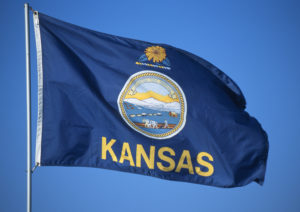 Kansas: Federal Judge Daniel Crabtree has dismissed a claim filed in Kansas City, Kansas, that asserted without evidence that voter machine manipulation was occurring in the state. A group of election deniers from across the state asked for the 2020 presidential election be rendered void and redone, the elimination of existing voting machines, the elimination of drop boxes, the elimination of Kansas’ three-day grace period for advance ballots and for the launch of a criminal investigation into Kansas Secretary of State Scott Schwab. Crabtree rejected the lawsuit on the grounds that it was outside his jurisdiction. In an earlier order, Crabtree called the suit “long on suspicion, contingency, and hypothesis, but short on facts and identifiable harm.” “We have proven the integrity of the Kansas election system for four years. We appreciate the judges who sided with the facts,” Whitney Temple, a spokeswoman for Schwab, said in a statement.
Kansas: Federal Judge Daniel Crabtree has dismissed a claim filed in Kansas City, Kansas, that asserted without evidence that voter machine manipulation was occurring in the state. A group of election deniers from across the state asked for the 2020 presidential election be rendered void and redone, the elimination of existing voting machines, the elimination of drop boxes, the elimination of Kansas’ three-day grace period for advance ballots and for the launch of a criminal investigation into Kansas Secretary of State Scott Schwab. Crabtree rejected the lawsuit on the grounds that it was outside his jurisdiction. In an earlier order, Crabtree called the suit “long on suspicion, contingency, and hypothesis, but short on facts and identifiable harm.” “We have proven the integrity of the Kansas election system for four years. We appreciate the judges who sided with the facts,” Whitney Temple, a spokeswoman for Schwab, said in a statement.
 Nevada: The Nevada Supreme Court denied an emergency writ from two voting rights groups that sought to shut down a controversial hand-count of all paper ballots in rural Nye County, meaning that the county clerk can continue the hand-counting of ballots that have been counted by machine tabulators. “Having reviewed the petition and answer, we conclude that petitioner has not demonstrated that our extraordinary intervention is warranted at this time,” the justices said in their decision. Officials in the county first started a hand-counting process on Oct. 26 but the Nevada Supreme Court ordered it shut down a day later, siding with the American Civil Liberties Union’s objections to volunteers reading election results aloud. Nye County resumed a revised version of its hand-counting last week after Republican Secretary of State Barbara Cegavske ordered the county to halt its counting until after polls closed.
Nevada: The Nevada Supreme Court denied an emergency writ from two voting rights groups that sought to shut down a controversial hand-count of all paper ballots in rural Nye County, meaning that the county clerk can continue the hand-counting of ballots that have been counted by machine tabulators. “Having reviewed the petition and answer, we conclude that petitioner has not demonstrated that our extraordinary intervention is warranted at this time,” the justices said in their decision. Officials in the county first started a hand-counting process on Oct. 26 but the Nevada Supreme Court ordered it shut down a day later, siding with the American Civil Liberties Union’s objections to volunteers reading election results aloud. Nye County resumed a revised version of its hand-counting last week after Republican Secretary of State Barbara Cegavske ordered the county to halt its counting until after polls closed.
 New Jersey: Superior Court Judge David Bauman allowed the Monmouth County superintendent of elections to open two voting machines in Manalapan after a poll worker failed to get results from them on Election Day. Deputy Attorney General George Cohen said that the poll worker “inadvertently failed to get vote results” before the machine was sealed. According to Cohen, the individual, who was not identified in a short court hearing today, removed two USB sticks before the voting machine before the uploading of results had been completed. As a result, one included results and the other did not – and election officials can’t know which machine they have results from. This is a fairly routine matter. In New Jersey, a court order is required for election officials to open a machine during the fifteen days after the election. One Democrat and one Republican will be present.
New Jersey: Superior Court Judge David Bauman allowed the Monmouth County superintendent of elections to open two voting machines in Manalapan after a poll worker failed to get results from them on Election Day. Deputy Attorney General George Cohen said that the poll worker “inadvertently failed to get vote results” before the machine was sealed. According to Cohen, the individual, who was not identified in a short court hearing today, removed two USB sticks before the voting machine before the uploading of results had been completed. As a result, one included results and the other did not – and election officials can’t know which machine they have results from. This is a fairly routine matter. In New Jersey, a court order is required for election officials to open a machine during the fifteen days after the election. One Democrat and one Republican will be present.
Superior Court Judge Benjamin Telsey signed an order today permitting the Cumberland County Board of Elections to open voting machines to retrieve emergency ballots that had been cast but might not have been recorded. Deputy Attorney General Levi Klinger-Christiansen said the election board sought the order “under an abundance of caution.” One Democrat and one Republican will be present at the unsealing of the machines and will together deliver the ballots to the Board of Elections. State law requires voting machines to be impounded for fifteen days and that has been extended to seventeen.
 New York: Republican state Senate candidate Dorey Houle, who was vying with Democrat James Skoufis to represent the 42nd state Senate District, filed a lawsuit against the state Board of Elections, the Orange County Board of Elections and Skoufis. Houle’s lawsuit challenges the counting of ballots cast during Tuesday’s election. She contends the Orange County Board of Elections is in possession of ballots that have not been counted — specifically 501 unopened ballots and an undetermined number of affidavit ballots — and that there were several voting machines that were defective, resulting in inaccurate tallies of votes. Houle is seeking a court order to preserve all ballots and voting materials, poll books, spoiled ballots and more related to the election of the state senator for the 42nd District. She also wants the court to declare her the duly elected candidate to represent the state Senate District 42.
New York: Republican state Senate candidate Dorey Houle, who was vying with Democrat James Skoufis to represent the 42nd state Senate District, filed a lawsuit against the state Board of Elections, the Orange County Board of Elections and Skoufis. Houle’s lawsuit challenges the counting of ballots cast during Tuesday’s election. She contends the Orange County Board of Elections is in possession of ballots that have not been counted — specifically 501 unopened ballots and an undetermined number of affidavit ballots — and that there were several voting machines that were defective, resulting in inaccurate tallies of votes. Houle is seeking a court order to preserve all ballots and voting materials, poll books, spoiled ballots and more related to the election of the state senator for the 42nd District. She also wants the court to declare her the duly elected candidate to represent the state Senate District 42.
State Supreme Court Justice Scott DelConte has ruled that more than 1,200 affidavit ballots can be counted as planned, denying a last-minute challenge to a new state law. DelConte issued his decision at exactly 10 a.m., the time that Oswego County had planned to begin counting the ballots. Onondaga County will follow suit at 1 p.m. Tuesday. The judge’s decision will move forward the counting of ballots in all Onondaga County races, including the competitive races for the 22nd Congressional District and sheriff. Onondaga County has already screened more than 1,000 of these ballots, but haven’t opened up the envelopes to count up the votes inside. Oswego County has nearly 300 more of these ballots. But a lawyer for Republican state Senate candidate Rebecca Shiroff argued Monday that both sides should have a chance to make objections, if necessary, to affidavit ballots that the boards of election have deemed valid. That’s the way the process worked before this year. A new state law, however, changed the process and may prevent the candidates from making objections on a ballot-by-ballot basis. The validity of the ballots is now up to the bipartisan boards of elections, Onondaga County lawyers argued. The state Board of Elections split on the issue during arguments Monday, with the Republican commissioners agreeing that the candidates should still be able to challenge affidavit ballots, and the Democratic commissioners arguing that the new law leaves those decisions to each board of elections.
 Oklahoma: In Tulsa’s City Council District 5, the winner of the election has asked for a recount, and the loser wants a hearing on irregularities that include some voters not getting a ballot. The Tulsa County Election Board counted provisional ballots Friday, which added some votes beyond what was tallied just on election day. Of 748 provisional ballots examined by the board, 319 were accepted and counted Friday. The addition of the provisional ballots changed the totals for the District 5 race to Mykey Arthrell, 5,043 votes, and Grant Miller 5,070. Arthrell filed a petition alleging irregularities that include some voters not being issued ballots. The Election Board has acknowledged that problem and engaged the Sheriff’s Office for an investigation. The Board said as many as 31 voters didn’t get the council ballot, while Ronald Durbin, an attorney for Miller, said the actual number is lower. The three member Tulsa County election board watched the count of the last few ballots Friday, while 15 spectators watched. Arthrell said he’s been unable to get specifics from the Election Board about the ballots, so he wants the court involved to compel some answers. Miller filed a request for a manual recount, while claiming the results should stand that have him winning. A hearing is planned for November 17, in Tulsa District Court.
Oklahoma: In Tulsa’s City Council District 5, the winner of the election has asked for a recount, and the loser wants a hearing on irregularities that include some voters not getting a ballot. The Tulsa County Election Board counted provisional ballots Friday, which added some votes beyond what was tallied just on election day. Of 748 provisional ballots examined by the board, 319 were accepted and counted Friday. The addition of the provisional ballots changed the totals for the District 5 race to Mykey Arthrell, 5,043 votes, and Grant Miller 5,070. Arthrell filed a petition alleging irregularities that include some voters not being issued ballots. The Election Board has acknowledged that problem and engaged the Sheriff’s Office for an investigation. The Board said as many as 31 voters didn’t get the council ballot, while Ronald Durbin, an attorney for Miller, said the actual number is lower. The three member Tulsa County election board watched the count of the last few ballots Friday, while 15 spectators watched. Arthrell said he’s been unable to get specifics from the Election Board about the ballots, so he wants the court involved to compel some answers. Miller filed a request for a manual recount, while claiming the results should stand that have him winning. A hearing is planned for November 17, in Tulsa District Court.
 Pennsylvania: Shawn Lee Denman, 61, of Meadville has been fined $200 plus court costs after pleading guilty in connection with an Election Day disturbance at a city polling precinct. On Election Day, police were called to Meadville’s 1st Precinct 1st Ward polling location at Grace United Methodist Church, 828 N. Main St., around 11 a.m. after Denman became agitated with both election poll workers and voters. After voting in person via machine, Denman had refused to leave the polling station, according to election officials. Denman then claimed to be a poll watcher, but had no credentials or poll watcher certificate, officials said. Police charged Denman with creating “unreasonable noise during polling hours that did create annoyance and alarm to poll workers and voters.” Meadville Police Chief Michael Tautin confirmed Denman did have a handgun on his person, but also had a valid concealed carry permit for it that was shown to officers. Denman never showed the weapon to anyone at the polling station and made no overt threats, Tautin said.
Pennsylvania: Shawn Lee Denman, 61, of Meadville has been fined $200 plus court costs after pleading guilty in connection with an Election Day disturbance at a city polling precinct. On Election Day, police were called to Meadville’s 1st Precinct 1st Ward polling location at Grace United Methodist Church, 828 N. Main St., around 11 a.m. after Denman became agitated with both election poll workers and voters. After voting in person via machine, Denman had refused to leave the polling station, according to election officials. Denman then claimed to be a poll watcher, but had no credentials or poll watcher certificate, officials said. Police charged Denman with creating “unreasonable noise during polling hours that did create annoyance and alarm to poll workers and voters.” Meadville Police Chief Michael Tautin confirmed Denman did have a handgun on his person, but also had a valid concealed carry permit for it that was shown to officers. Denman never showed the weapon to anyone at the polling station and made no overt threats, Tautin said.
 Texas: The Harris County GOP party has filed a 22-page lawsuit against the county and its Election Administrator, Clifford Tatum. “The plaintiff is the Harris County Republican Party and the defendants are the election administrator and Harris County itself,” says Andy Taylor, Election Lawyer and legal counsel for the Harris County GOP Party. On Monday, the Harris County GOP party said in a press conference that last Tuesday’s Election Day was botched. “This election was so botched that there’s no way to be confident in the outcomes in the close races,” says Taylor. “You literally cannot ascertain the winner vs. the loser.” The announcement of the lawsuit also comes on the same day Gov. Abbott has called on the Secretary of State, The Attorney General’s Office, and the Texas Rangers to initiate an investigation. Tatum released a statement Monday: “The Harris County Elections Administrator’s Office is fully committed to transparency regarding the processes and procedures implemented for the November 8, 2022, Midterm Elections. As already established, Harris County has been selected to participate in the 2022 SOS Audit and has been in communication with the SOS Auditing team regarding this election. The office is currently completing vote tabulation of provisional ballots in preparation for the statutorily required manual count that must occur before canvassing. The last day to Canvas is November 22, 2022. The office is currently reviewing issues and claims made about Election Day and will include these findings in a post-elections report to be shared promptly with the Harris County Elections Commission and the County Commissioner Court.”
Texas: The Harris County GOP party has filed a 22-page lawsuit against the county and its Election Administrator, Clifford Tatum. “The plaintiff is the Harris County Republican Party and the defendants are the election administrator and Harris County itself,” says Andy Taylor, Election Lawyer and legal counsel for the Harris County GOP Party. On Monday, the Harris County GOP party said in a press conference that last Tuesday’s Election Day was botched. “This election was so botched that there’s no way to be confident in the outcomes in the close races,” says Taylor. “You literally cannot ascertain the winner vs. the loser.” The announcement of the lawsuit also comes on the same day Gov. Abbott has called on the Secretary of State, The Attorney General’s Office, and the Texas Rangers to initiate an investigation. Tatum released a statement Monday: “The Harris County Elections Administrator’s Office is fully committed to transparency regarding the processes and procedures implemented for the November 8, 2022, Midterm Elections. As already established, Harris County has been selected to participate in the 2022 SOS Audit and has been in communication with the SOS Auditing team regarding this election. The office is currently completing vote tabulation of provisional ballots in preparation for the statutorily required manual count that must occur before canvassing. The last day to Canvas is November 22, 2022. The office is currently reviewing issues and claims made about Election Day and will include these findings in a post-elections report to be shared promptly with the Harris County Elections Commission and the County Commissioner Court.”
Opinions This Week
National Opinions: Poll workers, II, III, IV | Stacey Abrams | Election Day | Election deniers, II; |Results acceptance | U.S. Supreme Court | Election workers | Ballot measures | Election myths
California: Top two primary | Ventura County
Colorado: Smooth election, II
Connecticut: Early voting
Florida: Poll workers
Georgia: Holidays
Hawaii: Turnout
Idaho: Poll workers
Illinois: Early voting | Poll workers
Indiana: Poll workers
Iowa: Election workers | Absentee laws, II
Maine: Accessibility
Maryland: Poll workers | Election Day
Missouri: Poll watchers | Poll workers | Election fraud lies
Nevada: Protecting the vote | Election workers
New Jersey: Election observers | Same day registration
New York: Election Day-issues | Election guardrails | Democracy
North Carolina: Poll workers
Oregon: Ranked choice voting | Charter changes
Pennsylvania: Democracy | Poll workers | Allegheny County | Threats; Election errors
Rhode Island: Election night
Texas: Harris County
Virginia: Vote by mail
Washington: Secretary of state race
West Virginia: Election administration
Upcoming Events
Democracy on the (Down) Ballot: Unpacked the 2022 Midterms, Voting Rights and Local Electoral Reforms: During the 2022 midterms, voters not only cast a ballot to decide the balance of power in congress, but in in many states voters decided on a range of consequential ballot initiatives impacting the nuts and bolts of the electoral process including voter-ID laws, party primary reform, ranked choice voting, and proportional representation. The outcomes of these statewide and local level ballot initiatives have direct implications for future elections and participatory democracy. This midterm recap webinar will go beyond the candidate horse race and focus on analysis and perspectives from advocates and scholars on recent voting-related ballot initiatives, immediate implications for future elections, and what’s ahead for emerging electoral reforms at the state and local level. Join panelists Deb Otis, Director of Research at FairVote; Jenny Lee, Deputy Director of the Coalition of Communities of Color; and Wendy Underhill, Director of Elections and Redistricting at the National Conference of State Legislatures. Ash Center Director of Democracy Initiatives Nick Chedli Carter will moderate. When: November 22, 12pm. Where: Online
Informed Conversations on Democracy in the Digital Age: Informed brings together key leaders and experts to engage around the biggest questions at the intersection of technology, media, and democracy. Presented by Knight Foundation, the gathering will be an important opportunity for policymakers, researchers and the private sector to discuss the latest trends and research in this emerging field, while strengthening relationships that lead to more informed policy in the public interest. Internet technologies have brought unprecedented social advantages and helped democratize access to information and ideas. However, in recent years, these same technologies have also been exploited to mislead, disenfranchise and undermine democracy. As the internet continues to evolve, the challenges to an informed citizenry are likely to intensify in years to come. Informed will be a critical forum to explore these challenges and viable solutions. When: November 28-30. Where: Online.
What is the Future for Primaries?: The primary was devised a century ago as a corrective to the backroom bargains previously used to pick candidates. Today, this Progressive-era reform is a common means to select candidates for general elections. In recent years, however, the primary system has come into question as an effective method for nominating political candidates in an era of intensifying polarization, with many proposals to reform, restructure, or overhaul it. Join AEI’s Howard Husock, Kevin Kosar, and John Fortier; Ethics & Public Policy Center’s Henry Olsen; Brookings Institution’s Elaine Kamarck; Hoover Institution’s Benjamin Ginsberg; and the Republican Party of Virginia’s Michael Ginsberg for two panel discussions on whether party primaries are the most effective means to select legislators and how they shape governance in a time of partisan polarization. If you are unable to attend, we welcome you to watch the event live on this page. After the event concludes, a full video will be posted within 24 hours. When: November 29, 10am. Where: Washington, DC.
A Close Look at the ‘Independent State Legislature Theory’: Produced by The Brennan Center in partnership with the New York City Bar Association The so-called “independent state legislature theory” is front and center in Moore v. Harper, one of this Supreme Court term’s most watched cases. This radical theory holds that the Electors Clause and Elections Clause in the Constitution give state legislatures the authority to make decisions about federal elections without the oversight of state courts — and despite the existence of state constitutional provisions purporting to govern such elections. First proposed in the aftermath of the 2000 election, the theory has gained prominence during litigation over the 2020 election. Adoption of this dangerous theory could impact, for example, states’ ability to ban political gerrymandering. In this timely program, prominent scholars and practitioners will explore whether the independent state legislature theory has any valid constitutional underpinnings, the historical origins of the relevant constitutional clauses, and the challenges that a Supreme Court decision endorsing this theory would present for our democracy. When: November 30, 6pm. Where: Online
Bipartisan Policy Center’s 2022 Elections Summit: BPC’s greatest strength is as a convener, bringing together the best ideas of elected leaders, experts, and practitioners with an intentional focus on getting things done. Join us for a day-long summit featuring five panel discussions with elected leaders and foremost experts, moderated by journalists on the frontlines of democracy, voting, and election issues. Panels: Federal Election Reform in 2023; Threats to Democracy, Election Infrastructure, and Election Officials; Recapping Election Administration in the 2022 Midterms; Election Reform Efforts in 2023 State Legislative Sessions; and Election Information & Content Moderation – Review of 2022 and Projections for the 2024 Campaign. Featured Speakers: Jena Griswold – Colorado Secretary of State; Maggie Toulouse Oliver – New Mexico Secretary of State; Senator David G. Argall – Chairman, Pennsylvania State Government Committee; Senator Natalie Murdock – North Carolina, District 20; Lisa Desjardins – U.S. Capitol Correspondent, PBS NewsHour; and Jessica Huseman – Editorial Director, Votebeat. When: December 6. Where: Online and In-person.
MEDSL 2022 Post-Election Webinar: On December 14, 2022, we’ll be convening a great line-up of experts to discuss election administration and other happenings during the 2022 midterm election. From 1:30 to 3pm EST, we will be hosting a public webinar all about the 2022 election, featuring our own takes on what happened as well as highlighting other researchers’ work and what they saw. In particular, the webinar will feature a number of the research teams that were awarded grants under our new Evolving Election Administration Landscape project. From what happened online to what happened in polling places, we’ll cover as much as we can. Register today to hold your spot and receive more details about the event! Where: Online When: December 14 1:30pm Eastern.
Job Postings This Week
electionlineWeekly publishes election administration job postings each week as a free service to our readers. To have your job listed in the newsletter, please send a copy of the job description, including a web link to mmoretti@electionline.org. Job postings must be received by 5pm on Wednesday in order to appear in the Thursday newsletter. Listings will run for three weeks or till the deadline listed in the posting.
Assistant Director, Butler County, Pennsylvania— To supervise and direct the operational processes relating to voter registration, voting and elections, ensuring that voters’ rights are protected and votes are recorded and counted accurately. Assists the Director in implementing the day to day functions of the Elections Department. The incumbent supervises the non-exempt staff and answers voter and candidate questions or selects proper course of action to resolve problems. Assists Director in evaluating new technologies for election process. Consults with others regarding clarification of the Pennsylvania Election Code. Refers complex issues requiring clarification of the Pennsylvania Election Code or the Pennsylvania Constitution to the Director of Elections. A Bachelor’s Degree in a related field and/or equivalent work experience is required. Significant experience in Computer Science course work or equivalent is required. Prior work experience involving the electoral process is desirable, as is supervisory experience. Must be knowledgeable of State and County voting laws, regulations, procedures, and requirements. Computer, telephone and customer service skills are necessary. Salary: $45,129.18-$63,180.85. Application: For the complete job listing and to apply, click here.
Certification and Training Manager, Washington Secretary of State’s Office— The Program Manager for Certification & Training manages the provision of professional certification and training to state election administrators and canvassing board members in 39 Washington counties. The Certification and Training Program Manager reports to the Elections Director and is a member of the Elections Management Team that advises the Elections Director on direction and policy. The Program Manager is responsible for the administration of the Certification and Training Program of the Elections Division by providing strategic analysis, planning, and management of a program that includes four major functions. There functions are: 1) professional certification and training of local and state election administrators and county canvassing board members; 2) review of county election operations and procedures; 3) the election clearinghouse; and 4) testing of all vote tabulation equipment used in each county during state primary and general elections. Application: For the complete job listing and to apply, click here.
Chief Information Officer, Illinois State Board of Elections— Functions as Chief Information Officer (CIO) of the SBE Information Technology Systems. Responsibilities encompass full range of information services; application design and development, system administration, data administration, operations, production control, and data communications. In conjunction with the Board, Executive Director, and Executive staff, the CIO determines the role of information systems in achieving Board goals. Defines goals in terms of statutory obligations to be met, problems to be solved, and/or opportunities that can be realized through the application of computerized information systems. Prepares and submits budget based projections of hardware, software, staff and other resource needs to adequately provide for existing systems, as well as support of new project initiatives. Advises Executive Staff in matters relating to information technology. Develops presentations and reports for the Board and Administrative Staff. In conjunction with Executive Staff, evaluates system performance to determine appropriate enhancements. Salary: $7,885 – $13,237 Monthly. Application: For the complete job listing and to apply, click here.
Communications Specialist, The U.S. Election Assistance Commission— The employee and supervisor collaborate to develop the approach, timelines and general framework for projects and, within these parameters, the employee independently plans and carries out the work involved in developing, maintaining, and managing media communication, coordinating with others as appropriate, interpreting and applying policy, determining the content and format for media communication, and consulting with the supervisor on questionable content or issues. The Director of Communications assigns special projects and assignments, defining the nature of the assignment, objectives to be achieved, and resources available. The employee independently resolves most problems that arise, keeping the Director informed on unusual, sensitive or controversial matters. Completed work is reviewed for achievement of objectives and consistency with governing laws, regulations, policies, and the EAC strategic plan. Salary: $74,950 – $95,824. Application: For the complete job listing and to apply, click here.
Departmental Training Coordinator, DeKalb County, Georgia— The purpose of this classification is to develop, coordinate, deliver, and evaluate departmental training programs and learning solutions. The following duties are normal for this position. The omission of specific statements of the duties does not exclude them from the classification if the work is similar, related, or a logical assignment for this classification. Other duties may be required and assigned. Develops training programs for departmental employees; creates new and/or modifies existing courses and course materials; researches industry changes; and prepares activities and course assignments. Conducts training and facilitates in-house training programs for employees based on current trends and best practices. Assists employees in meeting certification and recertification requirements for mandated licensure and submits documents for license renewals. Coordinates training logistics to include training room, schedules, attendance tracking, passwords, supplies and set up; and selects or develops teaching aids including training handbooks, tutorials or quick reference guides . Administers and grades course assignments and exams; and tracks and analyzes learning curriculum effectiveness through various evaluations techniques including evaluation of individual performances. Maintains and prepares training and compliance records and prepares related documentation and reports; enters course exam grades; prepares training certificates; and updates compliance databases. Assists with internal departmental communications by preparing newsletters, promotional materials for training programs, flyers for departmental events, or related communications. Communicates with department management, supervisors, other employees, subject matter experts, schools, community groups, volunteers, the public, and other individuals as needed to coordinate work activities, review status of work, exchange information, or resolve problems. Maintains current knowledge of departmental business functions and operations to develop training programs and solutions for improving employee knowledge and performance within business units; and research training industry standards and best practices and applies new technologies. Salary: $52,815 – $81,862. Application: For the complete job listing and to apply, click here.
Deputy County Clerk, Boone County, Missouri— The Boone County (MO) Clerk’s Office seeks a deputy county clerk in its elections division. With general supervision, this clerk processes new and revised voter registrations, provides information to the public on candidates, ballot issues and other election information, determines ballot styles for walk-in absentee voters, verifies petitions, and performs related election duties. Salary: $15.45-$16.41/hr. Application: For the complete job listing and to apply, click here.
Director of Registration and Elections, Fulton County, Georgia— The County is seeking a Director of Registration and Elections (DRE). This position serves as the chief executive responsible for developing goals, objectives, policies, and procedures relating to voter registration and elections in Fulton County. The DRE also prepares, presents, and manages the department’s approved annual budget. The DRE leads programs and services that ensure safe, free, and accessible voter registration and elections in the County. The DRE ensures accurate collection and maintenance of voter registration data and administers the county elections and associated services, which includes but is not limited to absentee balloting, voter registration, voter education and outreach. The Director collects information and validates candidates for elective office, ensures the availability of training for poll workers, and directs efforts to educate voters on elections in the county. The DRE performs other duties, including preservation, storage, preparation, testing and maintenance of departmental election equipment. Furthermore, the director oversees election district boundaries, and administers the selection of polling places in the county. Salary: $175K-$195K. Application: For the complete job listing and to apply, click here.
Director of Elections, Cumberland County, North Carolina— The Elections Director works under the administrative direction of the County Board of Elections and Executive Director of the State Board of Election. The Elections Director performs professional, managerial, and administrative work for the Board of Elections and carries out all duties or responsibilities as assigned by Chapter 163 of the General Statutes of the State of North Carolina and as delegated by members of the County Board in accordance with the laws of the State of North Carolina, GS 163-35 (d) and 163-33. Reports to the Chairman of the Cumberland County Board of Elections. Salary: $78,784.40 – $132,425.23. Application: For the complete job listing and to apply, click here.
Division Director, Illinois State Board of Elections— Subject to Executive Director approval; oversees the administration of human resource programs including, but not limited to, compensation, payroll, benefits, and leave; disciplinary matters; disputes and investigations; performance and talent management; productivity, recognition, and morale; occupational health and safety; and training and development. Serves as the Board’s subject matter expert relating to personnel and human resource matters. Identifies staffing and recruiting needs; develops and executes best practices for hiring and talent management. Conducts research and analysis of Board trends including review of reports and metrics from human resource information systems. Recommends, implements, and ensures compliance with agency policies and procedures including, but not limited to, hiring, disciplinary actions, employee grievances, compensation plan, and employee performance evaluations. Creates and oversees human resource practices, programs, and objectives that provide for an employee-oriented culture that emphasizes collaboration, innovation, creativity, and knowledge transfer within a diverse team. Oversees the day-to-day administrative aspects of the Board’s personnel programs; accuracy of bi-monthly payrolls; benefits; quarterly and annual EEO/AA reporting; and, employee transaction documentation. Facilitates professional development, training, and certification activities for staff; development and maintenance of agency-wide training programs for on-boarding, staff development, and knowledge transfer. Responsible for the administration and oversight over all disciplinary matters; including: investigation of complaints; conducting witness interviews; documentation gathering; drafting and submittal of investigation findings to Executive Staff; advising Division Directors and Executive Staff on disciplinary matters; and, drafting of formal disciplinary reprimands in accordance with policy. Has administrative oversight of the Chief Fiscal Officer regarding budgetary and fiscal matters under the purview of the Division of Administrative Services. Supervises and evaluates subordinate staff; facilitates knowledge transfers and cross trainings; performs other duties as required or assigned which are reasonably within the scope of the duties enumerated above. Salary: $6,023.00 – $12,374.00 Monthly. Application: For the complete job listing and to apply, click here.
Early Voting Coordinator, Wake County, North Carolina— re you looking to be more involved in your community? Are you ready to be a part of democracy in the making? If so, get ready to roll up your sleeves and become a part of history! Wake County Board of Elections is currently seeking an Early Voting Coordinator to join our dynamic and talented Early Voting Team. The Early Voting Coordinator plays a critical role in the management and logistical planning of Early Voting. This includes communicating, scheduling election service vendors and managing voting site support operations to include the physically demanding work of setting up Early Voting sites. What will you do as an Early Voting Coordinator? Plan and organize all Early Voting operations; Assist with development of Early Voting expansion budget items and analyze budget impacts of new election laws and state directives and incorporate the changes into Early Voting site procedures; Work with Town Clerks, Municipal Administrators, Facility Directors, Special Event Coordinators and Superintendents to secure use of facilities for Early Voting; Manage Early Voting facilities, including scheduling, communication, support, logistics, database management and site setups; Develop Early Voting ballot order and determine the distribution of ballots each Early Voting facility will receive; Update and maintain the Early Voting blog and Early Voting page of the Wake County Board of Elections website; Manage the Early Voting support Help Line; Post-election reconciliation duties to include provisional management, presentations to the Board and assisting with record retention. Salary: Hiring Range: $20.81 – $28.10. Application: For the complete job listing and to apply, click here.
Election Review Program Lead, Washington Secretary of State’s Office— The certification and training program oversees, directs, and advises County Auditors in interpretations of federal and state election law and the correct administration of voter registration and elections throughout the state. The certification and training program reviews county practices for adherence to election law and best practices, provides essential tools for election administrators through official communications and training, and acts as liaisons for the Office of the Secretary of State. This position reports to the certification and training program manager and is responsible for overseeing, reviewing and advising county auditors on the federal and state elections laws and the administration of voter registration. Serves as the lead program specialist in the county election review program; Travels extensively throughout state to conduct reviews of county elections departments. Application: For a complete job listing and to apply, click here.
Election Security Intelligence Analyst, Illinois State Board of Elections— Under administrative direction, serves as a team member identifying computer system vulnerabilities in partnership with the Illinois State Board of Elections and Department of Innovation and Technology for local election authorities and other state election partners. Identifies vulnerabilities and provides technical analysis and remediation recommendations for those affected computer systems, including forensic analysis for investigations, monitoring and reporting. Provides technical support to the Cyber Security Information Sharing Program Manager and Cyber Navigator Program Manager of the Illinois State Board of Elections Cyber Navigator Program in coordination with the Department of Innovation and Technology Security Operations Center. Develops and recommends measures to safeguard systems before and after they are compromised. Conducts monthly Tech Talks on election security and relevant cyber threats for local election authorities and their IT and security staff. Develop annual cyber security training for local election authorities. Develops publications, guides, and other election security related resources for statewide distribution. Participates in the development of incident response plans, continuity of operation plans, and tabletop exercise training. Serves on-call for emergency situations and Election Day. Travel to attend training sessions, conferences, meetings, etc. is required. Serves as a team member identifying computer system vulnerabilities; reviews existing computer systems of local election authorities monitored by DoIT for security violations. Document incidents as appropriate. Perform analysis of systems for any weaknesses, technical flaws or vulnerabilities. Identifies vulnerabilities and provides remediation recommendations for those affected computer systems, including forensic analysis for investigations, monitoring and reporting. Coordinates with regionally assigned cyber navigators to assist local election authorities information technology staff/vendor mitigate incidents or provide technical support. Monitors network traffic by utilizing intrusion detection devices and other technologies. Monitors activities such as automated notification of security breaches and automated or manual examination of logs, controls, procedures, and data. Salary: $5,667 – $6,000 Monthly. Application: For the complete job listing and to apply, click here.
Elections Specialist, Oregon Secretary of State’s Office— n this role, you will serve as the front-facing customer service agent for the Elections Division. You will also provide administrative support for Division management and programs. This is accomplished in part by, but not limited to: Monitoring and managing the division’s public facing email boxes; Assisting voters via phone, email, and in-person; Processing the division’s incoming and outgoing mail; Resolving routine problems or complaints and escalating complicated issues to other staff members; Performing an initial review of documents filed with the division; Providing data entry assistance to division staff; Assisting division staff with mailings; Coordinating travel and scheduling meetings for the division; Providing support for records management; Fulfilling voter registration supply orders. Salary: $3,535 – $5,361/per month. Application: For the complete job listing and to apply, click here.
Elections Supervisor, Pierce County, Washington— The Pierce County Auditor’s Office is responsible for elections, licensing services, and public records. This position supervises an award-winning division in the second largest county in Washington State. There is plenty of activity between elections and experienced staff to accomplish division goals. The Auditor’s Office promotes innovation and process improvement. The Auditor’s Office Elections Division maintains voter registration rolls, conducts federal, state and local elections, verifies petition signatures, publishes a local Voters’ Pamphlet, and maintains precinct lines after redistricting. Pierce County has over 550,000 registered voters and conducts four elections each year. The Elections Division serves 114 jurisdictions (boundary lines, voter assignment, elections) and files candidates for over 500 elected offices. As the Elections Supervisor, you will have the ability to immediately contribute to the division’s success. You will be guided through the process with coaching-focused managerial support, a team that wants you to be successful in your role, and an organizational culture that encourages continuous learning and professional development. You will be influential across the state, networking with other counties, sitting on advisory committees, and collaborating with the Elections Manager on policy decisions. Salary: $36.44 – $46.33 Hourly. Application: For the complete job listing and to apply, click here.
Executive Director, Ranked Choice Voting Resource Center— The primary responsibilities of this position are to set and reinforce the mission and vision of the organization, define its strategic direction and implement strategic plans for the organization’s development, make executive decisions that drive organizational growth, and build and manage relationships including stakeholders and potential donors. The Executive Director works with the Board to set goals for the organization, governs over organizational activities and relationships, guides the organization’s culture, and directs communication to support the mission of the organization. The ideal candidate will define the organization’s priorities and direction, oversee staff recruitment and retention, and work systematically to meet organizational goals. He or she should be a self-starter with the ability to work independently and with a team. This is a full-time remote position with in-person meetings and travel as needed. Application: For the complete job listing and to apply, click here.
Executive Director, National Vote at Home Institute — The Vote at Home Executive Director shall be responsible for managing all aspects of the organizations’ operations. These major responsibilities include the following: Strategy. Recommending, implementing, and effectively executing all VAH policies and key strategies and programs as approved by one or both boards. Budget. Fundraising and budget administration, to ensure Vote at Home’s financial sustainability and the effective and efficient expenditure of available funds. Management. The hiring, supervision, and performance management of all staff, contractors, and contracts to promote diversity and equity, ensure a collaborative and productive workplace, and comply fully with all applicable federal, state, and local laws. Partnerships. The creation of collaborative partnership relationships with other key organizations and individuals to help promote and amplify VAH’s work. Communication. The effective communication, in a wide variety of public and private forums, of Vote at Home’s vision, mission, key strategies, and core messages. Salary: $120K-$160K. Application: For the complete job listing and to apply, click here.
Information Services Specialist, Illinois State Board of Elections— Under the general supervision of the Chief Information Officer and Deputy Chief Information Officer and the day-to-day supervision of the Information Services Team Leads, independently and as a project team member, develops, maintains, and enhances the State Board of Elections’ Information Systems. Establishes application development task schedules, testing plans and implementation schedules; Performs technical analysis, design, and programming according to SBE standards; Coordinates development, testing and implementation with end-users, technical consultants and IT Staff according to SBE standards. Consults with end-users to determine application goals, requirements, cost, architecture, and impact to existing systems; Provides Level 1 technical support for Agency end-users as well as end-users of other agency-developed systems. Through continuing self-study and/or formal coursework, acquires knowledge of advanced information systems concepts and techniques, productivity tools, election law, and Board policy as they affect Board Information Systems. Performs other duties as required or assigned which are reasonably within the scope of the duties enumerated above. Application: For the complete job listing and to apply, click here.
Information Technology Security Analyst, Illinois State Board of Elections— The IT Security Analyst reports directly to the Manager of Cyber Operations and Infrastructure. Supports the administration, implementation, review, and improvement of endpoint, network, hardware, application, and data security practices. Implements, supports and monitors the agency’s information security applications, including email security, web security, endpoint security software, firewalls, intrusion prevention applications, data loss prevention, etc. Monitors system dashboards and logs for threat indicators. Analyzes data and performs necessary incident response procedures. Conducts network, system and application vulnerability assessments. Analyzes agency threat surface and makes recommendations to management to harden agency systems. Evaluates agency processes and implements and/or makes recommendations to enhance security. Reviews information received concerning threat events from end users, supervisory personnel, other federal, state, county and local agencies and governmental entities involved in the exchange of data with the State Board of Elections (SBE), external entities such as the Multi-State Information Sharing and Analysis Center (MS-ISAC), Elections Infrastructure Information Sharing and Analysis Center (EI-ISAC), trusted cybersecurity vendors, law enforcement agencies, and public information sources. Consults with SBE staff on security issues. Provides a high level of customer service to agency staff, state, county, and local election officials. Ensures service desk queues and incidents are handled in an appropriate and timely manner. Salary: $6,264 – $8,917 Monthly. Application: For the complete job listing and to apply, click here.
Language Access Coordinator (Russian and Somali), King County Elections — The Department of Elections is searching for energetic and resourceful professionals who like to “get stuff done”. The Language Access and Outreach Coordinator position in the Elections Department combines an exciting, fast paced environment with the opportunity to cultivate talents and apply a variety of skills. The ideal candidate will thrive in an innovative, fast-paced environment and will not hesitate to roll up both sleeves, work hard, have fun, and get the job done. The Language Services and Community Engagement Program is recruiting Language Access and Outreach Coordinators who will support the program for the Russian and Somali languages. This position provides bilingual assistance, translation, and community outreach support. These individuals must be able to read, write, understand, and speak Russian or Somali at the language proficiency testing level used by the Department. In addition, as part of the community engagement program, they will participate in voter registration and voter education activities with community partners and provide support to out Voter Education Fund partners. Individuals in this position will provide language access assistance to our communications team and administrative support to other election work groups as needed. Salary: $33.63 – $42.62 Hourly. Application: For the complete job listing and to apply, click here.
Policy Analyst, National Conference of State Legislatures (NCSL) — This is an entry-level policy position with NCSL’s close-knit elections and redistricting team. NCSL is known for its role as the nation’s keeper of nonpartisan, accurate information about election administration, redistricting, campaign finance and ancillary topics. The successful candidate will work on election administration topics relevant to state legislators and legislative staff and will contribute to a range of projects, including webpages, databases, briefs and presentations. A policy analyst operates under the close supervision of others and has no supervisory responsibilities. Tasks likely to include tracking legislation in databases, answering research requests from legislators or legislative staff, contributing research in support of projects led by others and assisting with meeting planning. Salary: $4,014/mo. Application: For the complete job listing and to apply, click here.
Public Relations Manager, DeKalb County, Georgia— The following duties are normal for this position. The omission of specific statements of the duties does not exclude them from the classification if the work is similar, related, or a logical assignment for this classification. Other duties may be required and assigned. Supervises, directs, and evaluates assigned staff; develops and oversees employee work schedules to ensure adequate coverage and control; compiles and reviews timesheets; approves/processes employee concerns and problems and counsels or disciplines as appropriate; assists with or completes employee performance appraisals; directs work; acts as a liaison between employees and management; and trains staff in operations, policies, and procedures. Organizes, prioritizes, and assigns work; prioritizes and schedules work activities to meet objectives; ensures that subordinates have the proper resources needed to complete the assigned work; monitors status of work in progress and inspects completed work; consults with assigned staff to assist with complex/problem situations and provide technical expertise; provides progress and activity reports to management; and assists with the revision of procedure manuals as appropriate. Develops and implements a comprehensive communications plan to support the mission and objectives of the department/division; develops communications strategies; reviews internal and external communications to ensure consistent messaging; creates and implements branding initiatives; manages online presence; and generates public relations campaigns to support special projects, service changes, and new initiatives within the department. Oversees the creation of print and online content to publicize and promote department programs, facilities, events, or objectives; researches and verifies information; reviews, approves, or produces newsletters, calendars, brochures, and flyers; monitors, approves, and creates content for social media and department website; and writes or edits official department announcements, emails blasts, press releases, letters, or posts. Oversees community outreach programs and events; plans, organizes, and oversees special events, facility tours, educational programs; oversees the selection of locations, dates, and sponsorships; reviews activities and materials prepared by staff or vendors; recruits and supervises event volunteers; and coordinates set-up, staffing, and implementation of program/event plans. Represents department as a spokesperson; serves as a liaison to the news media, other departments, boards, and other external groups; responds to media requests; gives interviews and official comments; and produces short television segments for DeKalb County TV. Cultivates community partnerships to advance departmental objectives and initiatives; develops and maintains relationships with community partners; attends or leads community events on behalf of the department; responds to inquiries from citizen groups or the public; and serves on internal and external committees or projects. Prepares and monitors public relations budget; prepares cost estimates; develops annual budget requests; and reviews and approves expenditures. Salary: $67,182 – $104,133. Application: For the complete job listing and to apply, click here.
Voting Rights Expert, The Carter Center— The Carter Center is seeking a highly qualified voting rights analyst to work on the Center’s US election advisory team under the guidance of the Democracy Program staff. The voting rights expert will assess and analyze key issues affecting women, the disabled, and disenfranchised groups in the United States. The voting rights expert will contribute to public and private statements concerning the electoral process and provide an impartial assessment of elections as well as detailed recommendations for ways to improve the program’s inclusiveness, credibility, and transparency as it relates to voting access of historically disenfranchised peoples. A minimum of seven (7) years of experience in democracy and/or elections is required, in addition to a degree in political science or another relevant field. Application: For the complete job listing and to apply, click here.
Marketplace
electionline provides no guarantees as to the quality of the items being sold and the accuracy of the information provided about the sale items in the Marketplace. Ads are provided directly by sellers and are not verified by electionline. If you have an ad for Marketplace, please email it to: mmoretti@electionline.org